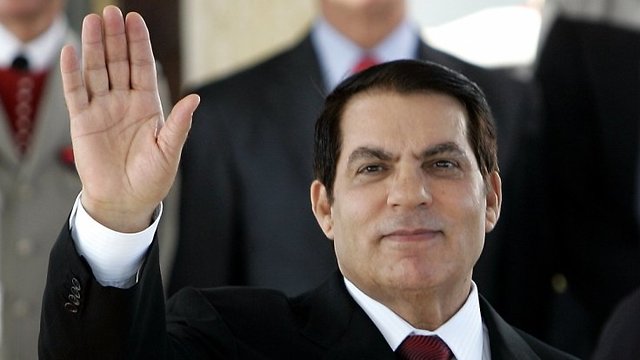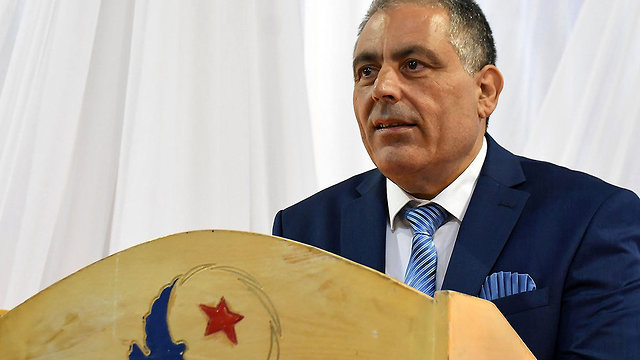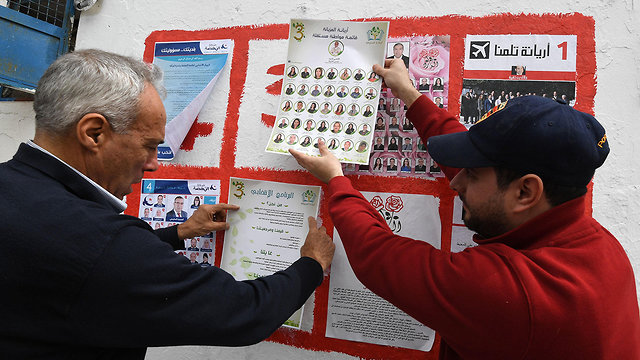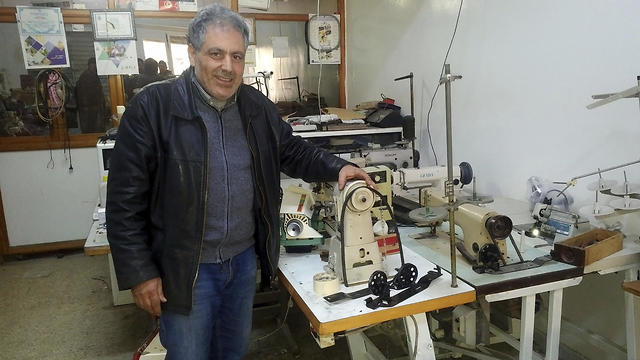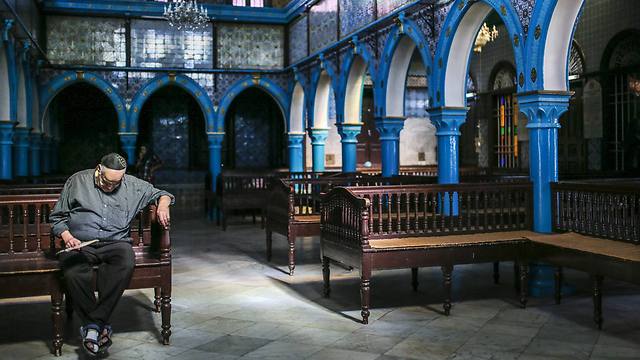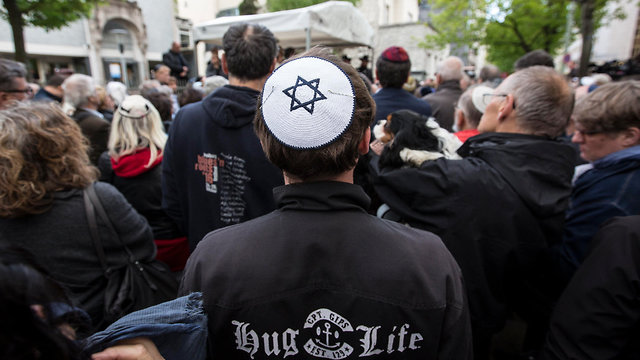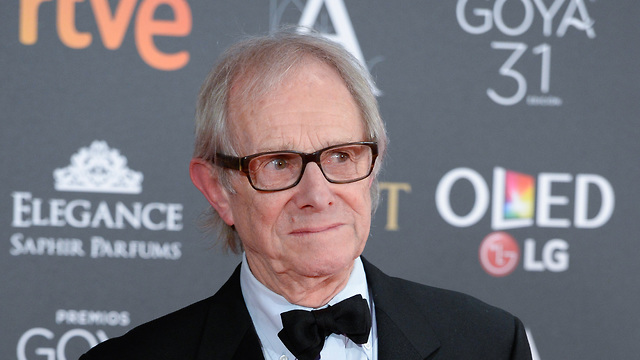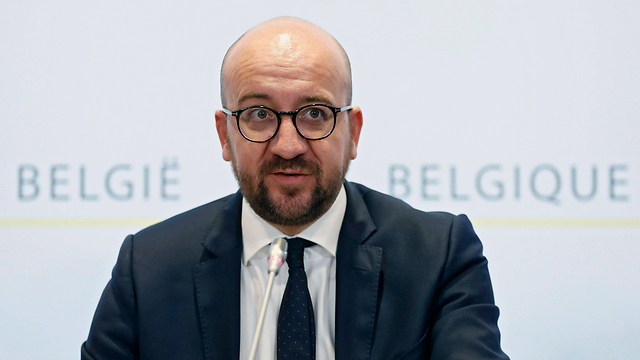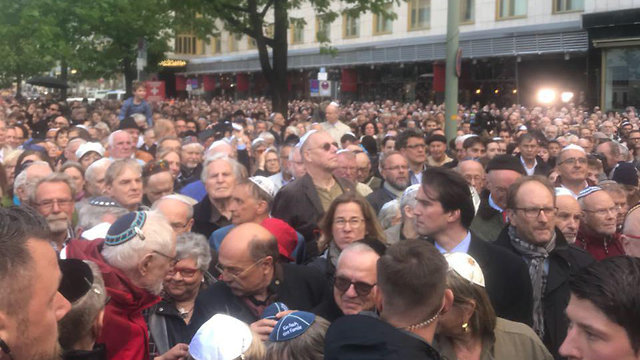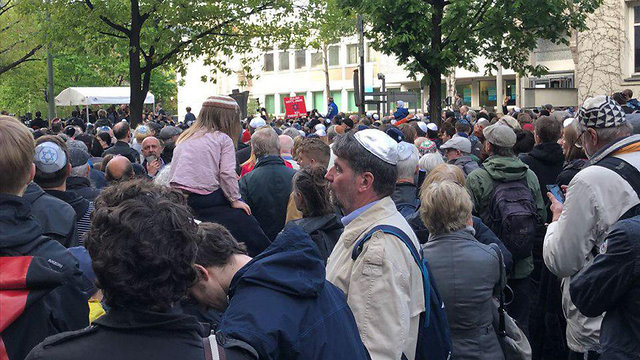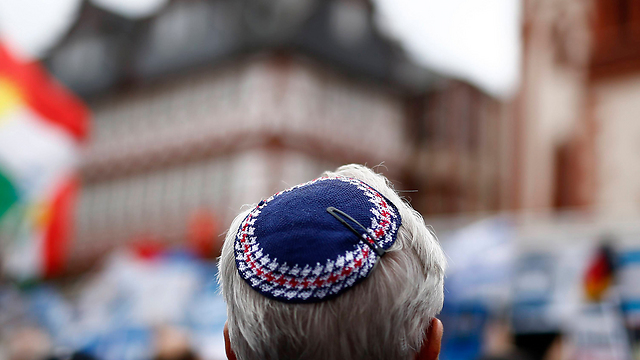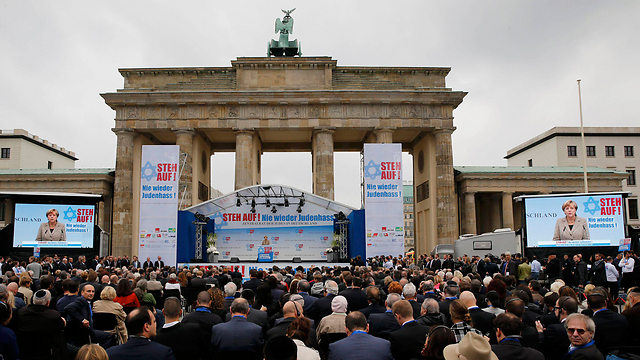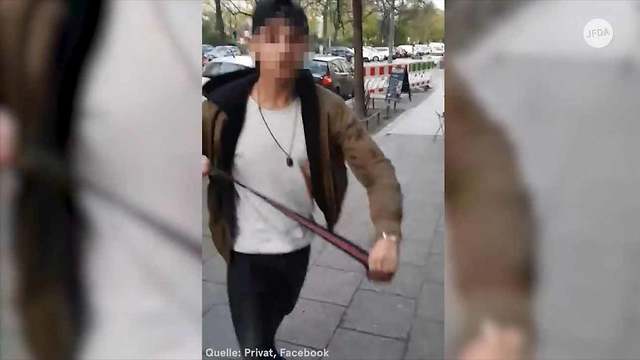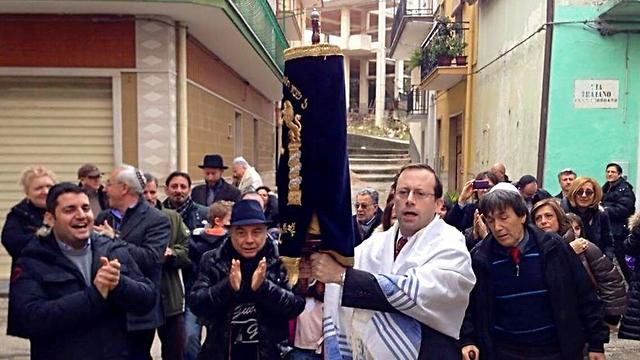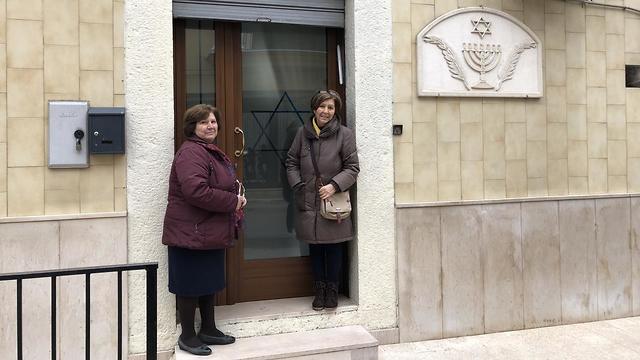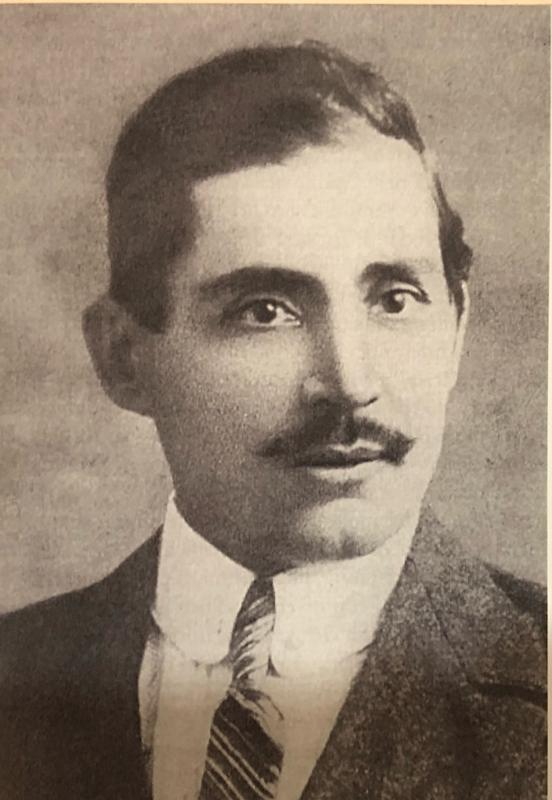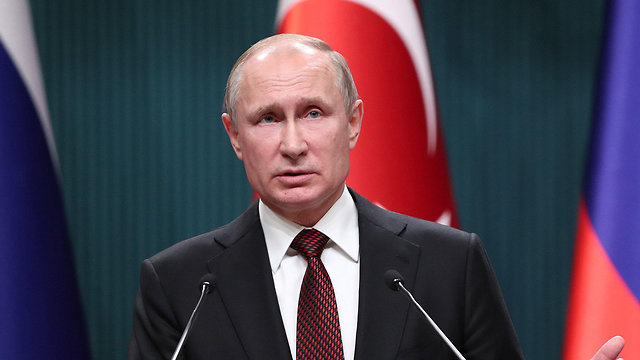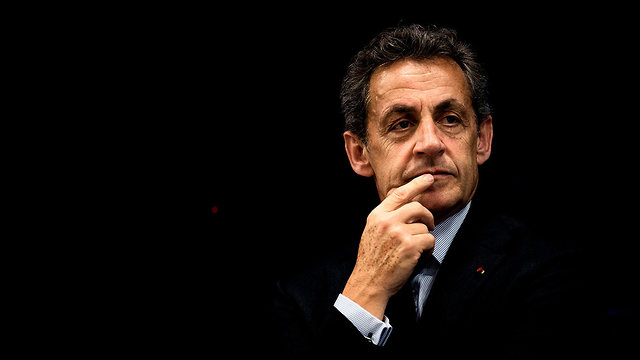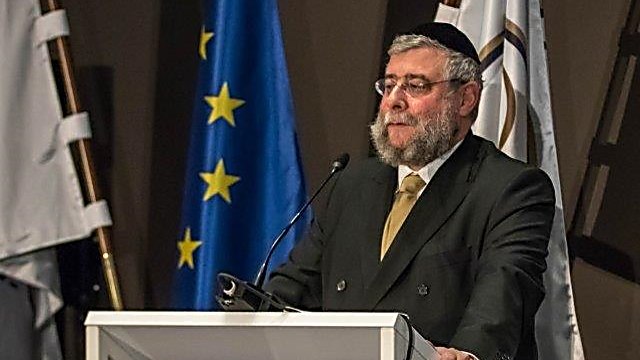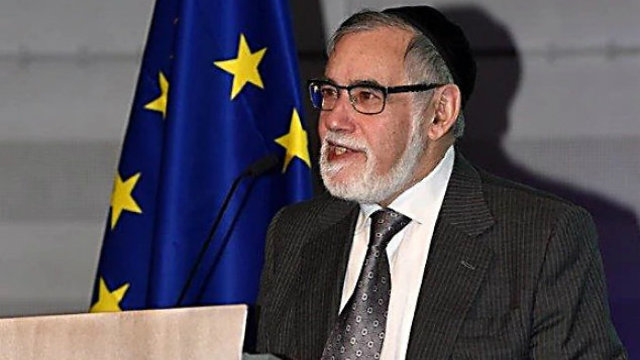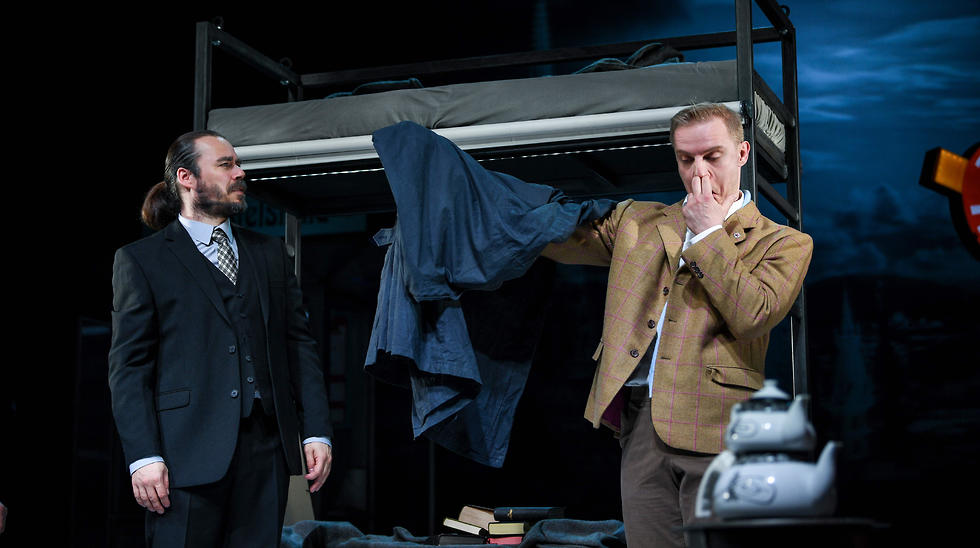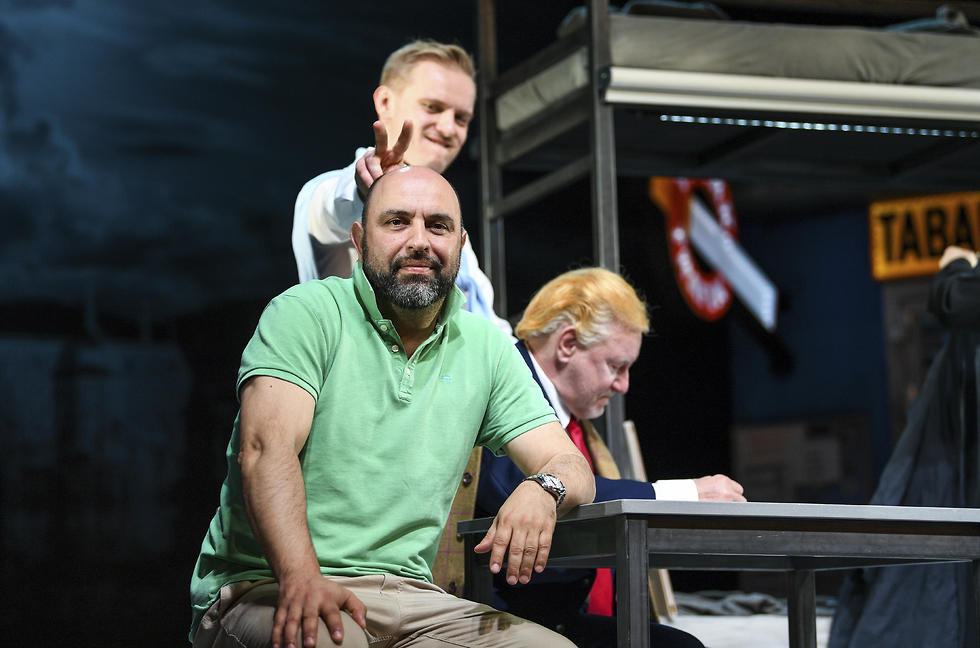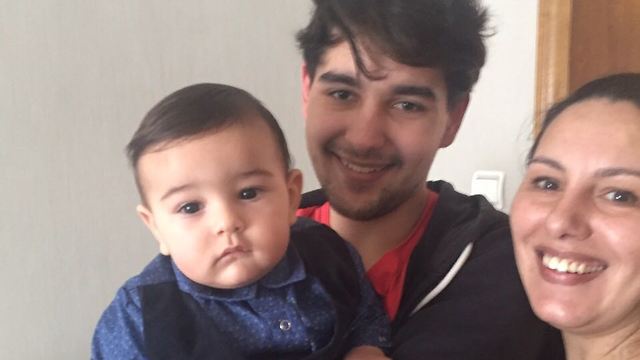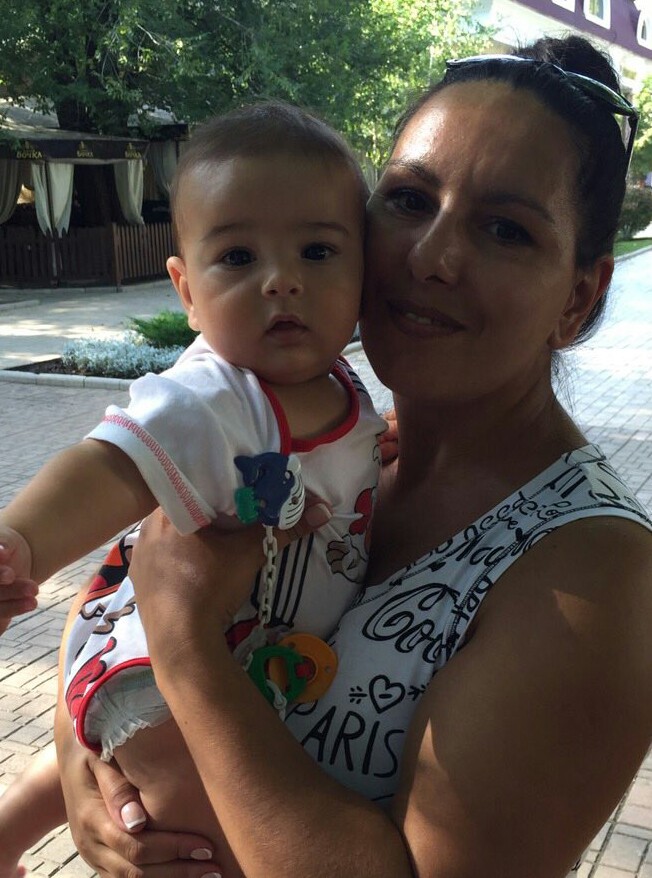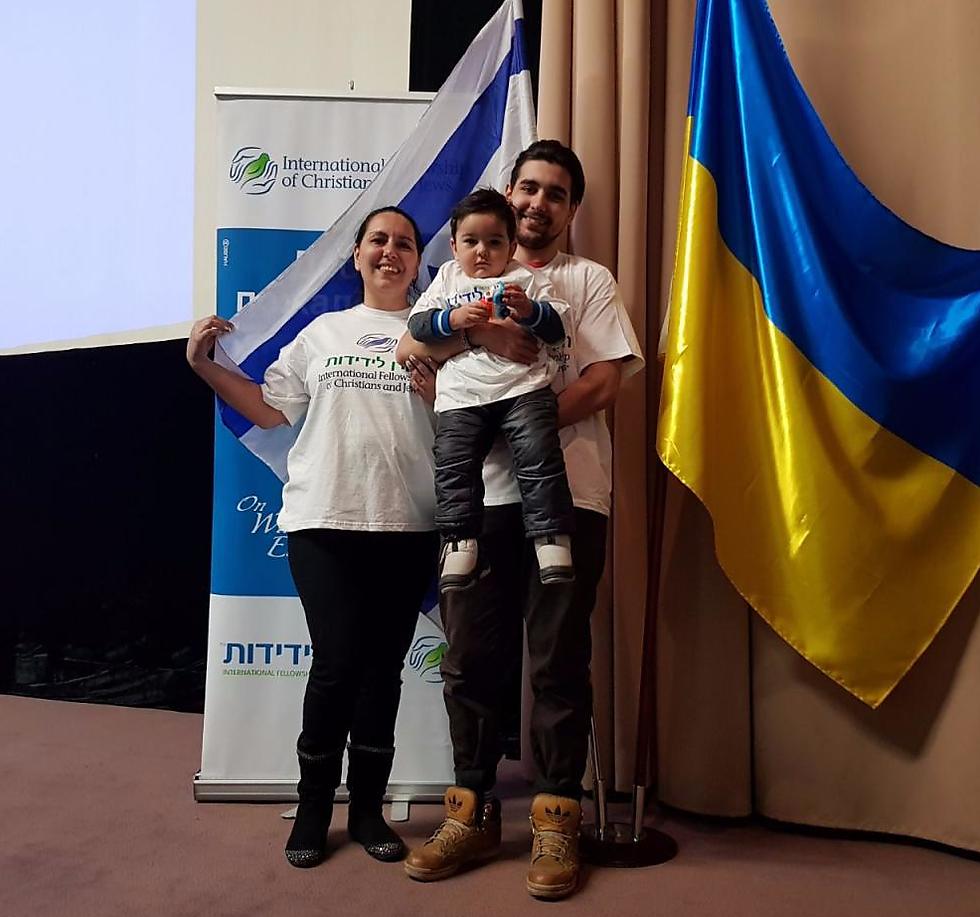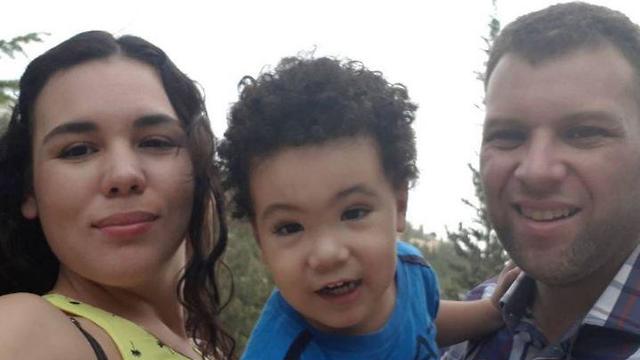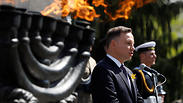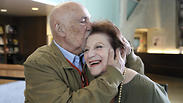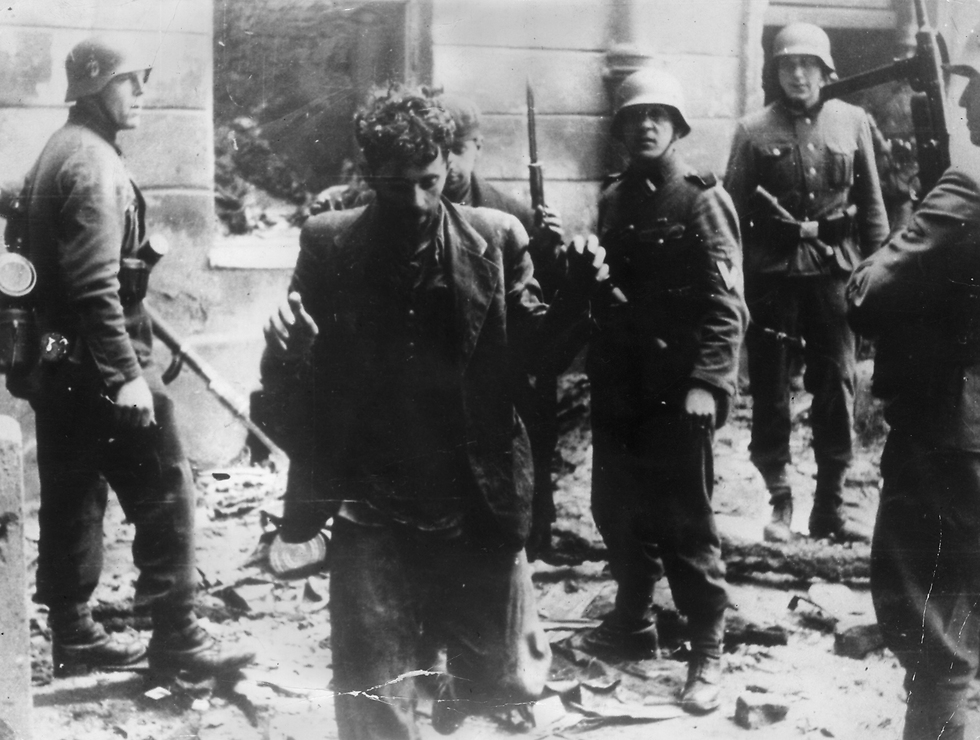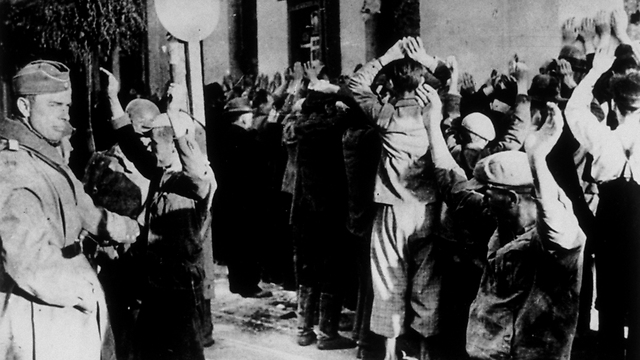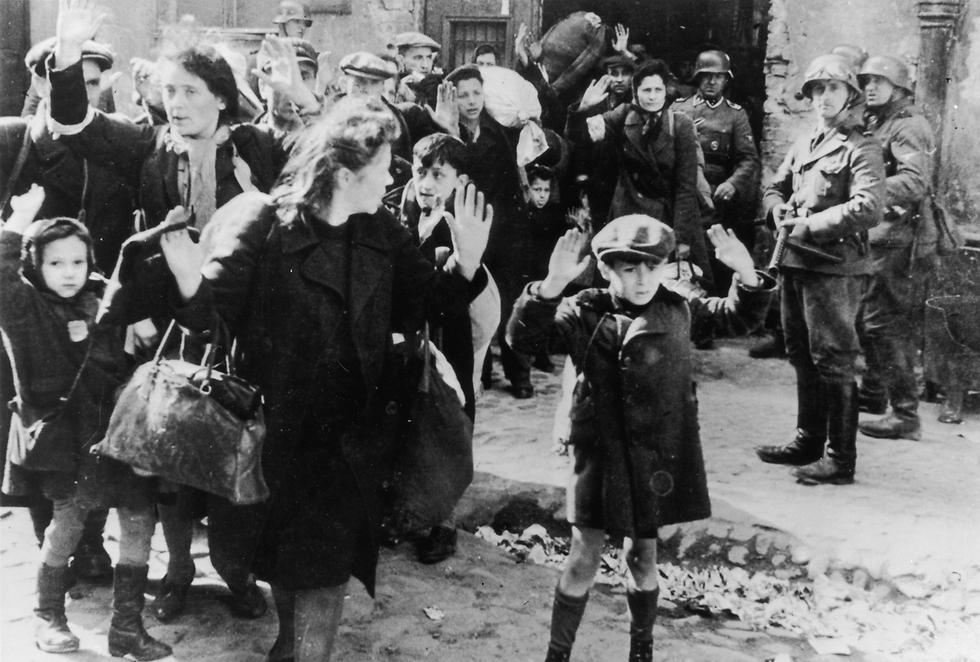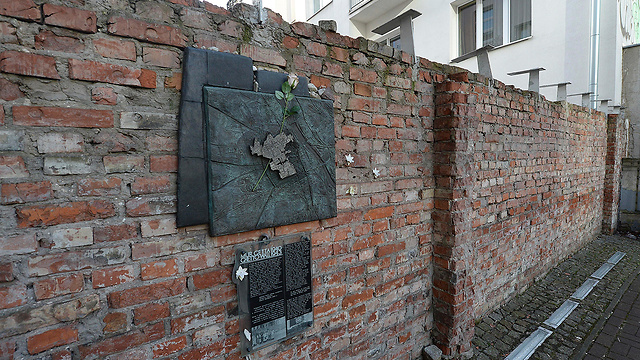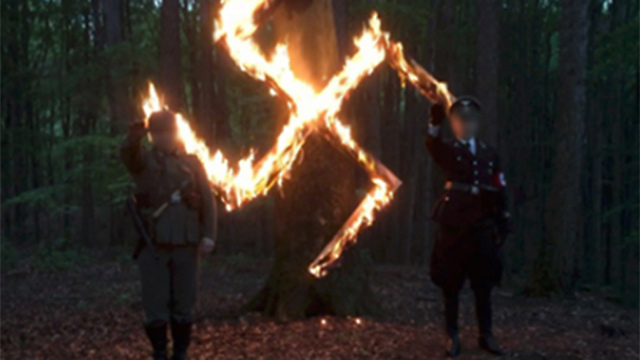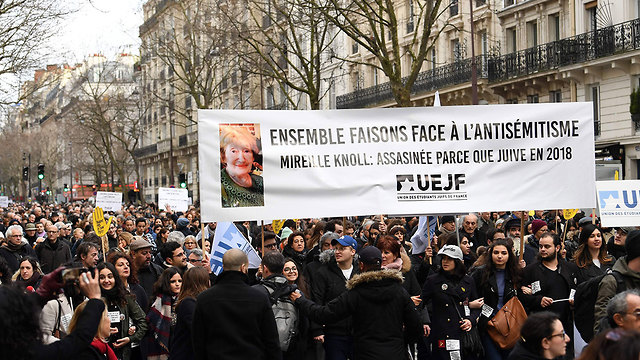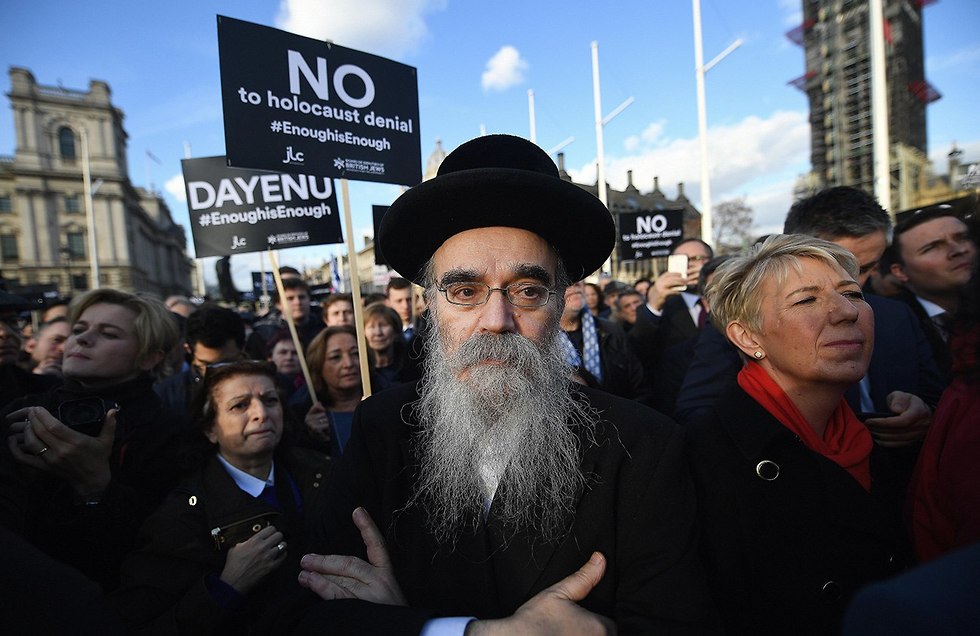A “Kippah March” got underway in Germany on Wednesday in a mass display of solidarity with the country’s Jewish community after a
video that surfaced earlier this week showed a 19-year-old Syrian asylum-seeker whipping a man wearing a skullcap in Berlin. The march went ahead despite exhortations from the head of
Germany's Central Council of Jews, Josef Schuster, who told broadcaster Radioeins Tuesday that wearing a skullcap is right in principle, but that he was advising individuals "against showing themselves openly with a kippah in a big-city setting in Germany, and wear a baseball cap or something else to cover their head instead."
Israel's Chief Rabbi David Lau, however, called on German Jewry to refrain from removing skullcaps from their heads while out in public, despite the danger of being targeted for anti-Semitic hate crimes as a result.
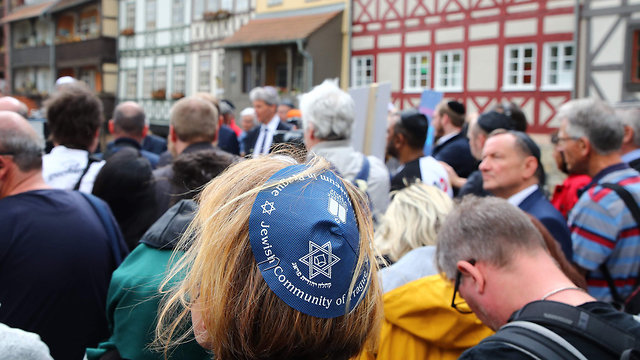
Kippah March in Berlin (Photo: AFP)
Five hundred people took part in the rally, as marchers donned a skullcap as a show of defiance against the rising tide of anti-Semitism and as many Jews wonder about their safety in Germany, which has tried to atone for Nazis’ killing of 6 million European Jews in the Holocaust more than 70 years ago.
“Since World War II, there has not been a demonstration like this in which so many people have worn the Kippah outside a Jewish community building in Berlin,” said Schuster, whose advice ultimately went unheeded.
“We can never allow anti-Semitism to become a norm in Germany,” said Foreign Minister Heiko Maas ahead of the march. “There can be no discrimination against any person because of his ethnicity, skin color or religion.”
The march was also attended by Berlin Mayor Michael Müller. “Berlin stands firm alongside the State of Israel. When Jews are attacked here, it is an attack on us all,” he said.
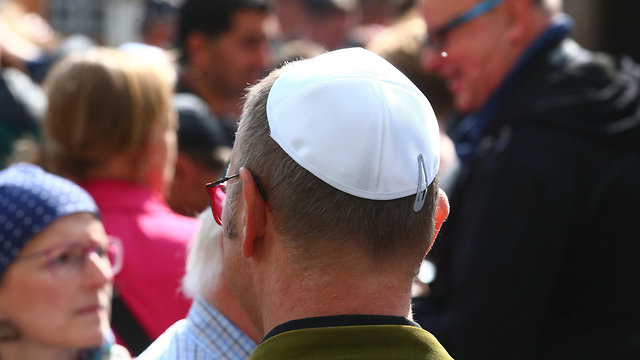
(Photo: AFP)
Germany's music industry scrapped its prestigious annual Echo awards on Wednesday after a row over anti-Semitism, hours before the nationwide rallies were due to take place.
The awarding of this year's Echo music prize to a rapper duo accused of reciting anti-Semitic lyrics caused outrage. Several previous winners returned their awards in protest.
In a further show of solidarity with the Jewish community, the BVMI music association said the Echo prize had been so damaged by the row that a new start was required.
"On no account do we want this music prize to be a platform for anti-Semitism, contempt for women, homophobia or for belittling violence," it said in a statement.
The controversial winners were Kollegah and Farid Bang, whose lyrics include: "I'm doing another Holocaust, coming with a Molotov" and who sing that their bodies are "more defined than Auschwitz prisoners".

Kollegah and Farid Bang (Photo: AFP)
The rising tensions have come as a time when Germany has been grappling with an influx of more than 1 million mostly Muslim migrants, along with the rise of a nationalist party, the Alternative for Germany, which was elected to Parliament last year. Its leaders are known for their openly anti-Muslim stance, but their anti-Semitism is less apparent.
Across Europe, anti-Semitism has been on the rise in recent years, and thousands of Jews—mostly from France—have moved to Israel.
About 150 people—Jews, Muslims, Christians and atheists—came together Wednesday and put on kippahs in a show of solidarity in the eastern city of Erfurt. Other rallies were expected later in the day in Berlin, Cologne and Potsdam.
In last week’s attack in Berlin, the 21-year-old victim, an Arab Israeli who said he wore the kippah in a show of solidarity with his Jewish friends, caught the assault on video, which quickly went viral. It showed a young man whipping him violently with a belt while shouting “Yahudi!”—Jew in Arabic.
The RIAS group that tracks anti-Semitism said there were 947 anti-Semitic incidents last year in Berlin, including 18 attacks and 23 threats last year.
In all of Germany, authorities say there are a high volume of anti-Semitic incidents reported, with the equivalent of nearly four per day in 2017. There were 1,453 anti-Semitic incidents, compared with 1,468 incidents in 2016 and 1,366 in 2015.
Schuster’s comments on hiding the skullcap drew sharp criticism from other Jewish leaders, who say Jews should wear a kippah to show they’re not afraid.
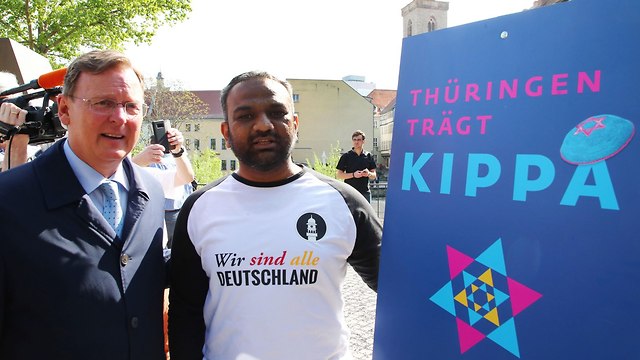
(Photo: AFP)
“Jewish identity is not something we should hide,” said Rabbi Yehuda Teichtal. “We have to be proud of who we are and at the same time fight anti-Semitism.”
Yesh Atid leader Yair Lapid also attended the march. “Jews cannot be afraid to walk around with their Kippah in Germany in 2018. I am willing to accept a situation in which we are afraid and our children are afraid like their parents and grandparents were scared,” Lapid said.
“I met today with people from the Jewish community and they asked me what I think and I told them, walk around with your Kippah and clubs and react in the way Jews should react in 2018 when someone threatens them,” he added.
“Anti-Semitism has and always, and will exist. We have a state, and because of that we have an army, and because of that I can march today in Germany and tell anti-Semites that they can bite us.”
For years, many Jewish men in Germany and across Europe who wear the kippah as a symbol of their devotion to God have been hiding their skullcaps under baseball hats when they are in public.
Anti-Semitism has existed in Europe for hundreds of years, often fanned by Christian churches who have blamed Jews for the killing of Jesus. In recent decades, however, Muslim immigrants have added a new strain by holding Jews responsible for the Israeli-Palestinian conflict.
“We also have new phenomena (of anti-Semitism in Germany). We have refugees now, for example, or people of Arab origin who are bringing a different type of anti-Semitism into the country,” Merkel told Israeli TV this week. “In the new government, we have for the first time appointed a commissioner for Jewish life in Germany and in the fight against anti-Semitism.”
The decision followed a recommendation by experts and came amid concerns over the bullying of Jewish children in schools in recent months and the burning of Israeli flags during a recent pro-Palestinian protest in Berlin.
Earlier this month, a rap band that included cynical references about the Auschwitz death camp in its lyrics won the Echo award, Germany’s most important music prize, drawing strong criticism from other artists and government officials. After several past winners said they would return their awards, the German music industry behind the Echo said Wednesday it would scrap the prize in its current form.
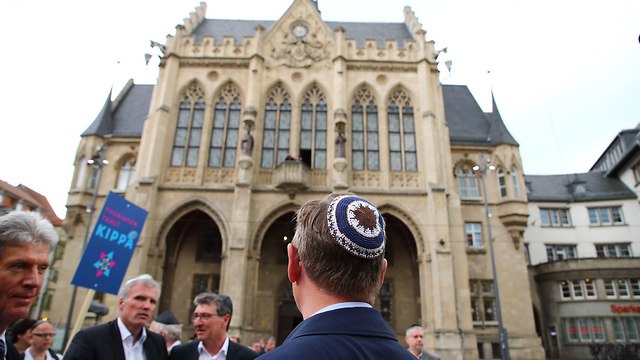
(Photo: AFP)
Neighboring France also has witnessed virulent anti-Semitism in recent years, notably in two Islamic extremist attacks targeting a Jewish school and a kosher supermarket. More recently, authorities say anti-Semitism was a motive for the stabbing death last month of an 85-year-old Parisian woman, a killing that shocked France.
Thousands of French Jews have left for Israel in recent years, but France still has the highest Jewish population in Europe, about half a million.
Around 200,000 Jews live in Germany, most of them immigrants from the former Soviet Union. That’s fewer than half of the 500,000 Jews who lived in the country before the Holocaust.
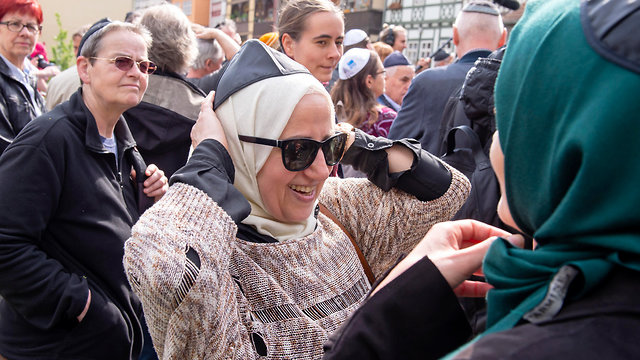
(Photo: AP)
Some 3.3 million Jews lived in Poland on the eve of the Holocaust, making it Europe’s largest Jewish community, and the second-largest in the world. There are no exact numbers today because many people with Jewish roots do not register. Estimates are in the thousands.
Poland witnessed a startling wave of anti-Semitic comments earlier this year by government officials amid a dispute with Israel over a new Polish law. The law criminalizes blaming Poland for Holocaust crimes. The anti-Semitic rhetoric, unprecedented in Poland in 50 years, deeply shook the country’s tiny Jewish community.
Despite the rhetoric, Poland is still considered one of the safest countries in Europe for Jews, with violence extremely rare. With no radical Muslim population and no left-wing anti-Semitism, Jews in Poland have to worry only about the extreme right, which is small but growing more emboldened.
Kobi Nachshoni, Itamar Eichner, Associated Press and Reuters contributed to this report.
Let's block ads! (Why?)
Germans don skullcaps to protest anti-Semitism : https://ift.tt/2HZGEH3
